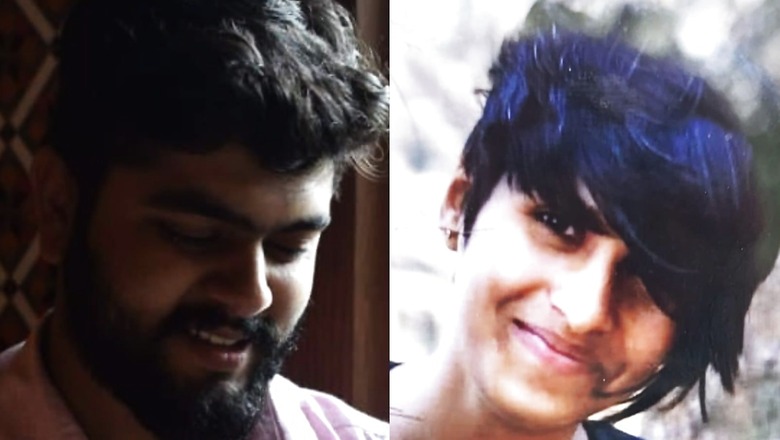
views
“She told us that he used to abuse her. That day, she had come with marks on her body. There were cigarette burns and bruises. He used to beat her,” a friend of Shraddha Walkar told The Indian Express. Shraddha was allegedly murdered by her live-in partner Aaftab Poonawala. The gruesome murder and the horrific details of the case are already out in the media.
But, this case is a crucial reminder to all: we must stop normalising abuse and toxic relationships. Abuse and toxic relationships can become normalised for a number of reasons, but society plays a key role. In many ways, society imposes norms that normalise toxicity and even romanticise abuse. This culture of normalising abuse has proliferated in popular cultures such as movies, reality shows, and OTT platforms.
The gruesomeness of this particular case is without a doubt unmatched. But domestic abuse and violence are what led to the death of Shraddha Walkar. In our daily interactions, we have encountered a number of individuals who have experienced abuse in their romantic, dating, live-in, and other relationships. People who support normalising abuse and unhealthy relationships include several people we know. Shraddha and Aaftab live in everyone’s neighbourhood, so they are not just any random couple.
According to a report published by the World Health Organization (WHO) on March 9, 2021, globally about 1 in 3 (30%) of women have been subjected to either physical and/or sexual intimate partner violence or non-partner sexual violence in their lifetime. Most of this violence is intimate partner violence. Worldwide, almost one-third (27%) of women aged 15-49 years who have been in a relationship report that they have been subjected to some form of physical and/or sexual violence by their intimate partner.
Parents also play significant roles in the normalisation of violence in romantic relationships. Most Indian families teach their daughters that, as women, they will have to make concessions or sacrifices in order to have happy marriages and relationships. Similar to women, men have grown up with the notion that they have the sole authority to direct their partners in what to do and what not to do. Many times, parents compel daughters to remain within the toxic relationship and do not support their daughters in ending abusive marriages. This is not the time to pass judgement or assign blame. But it is past time to acknowledge that everyone around the person in a relationship, not just them, is contributing to the normalisation of violence. The duties ought to be distributed equally.
India has a limited understanding of abusive relationships. Contrary to popular belief, abuse does not always involve physical force. Abuse relies on gaslighting and mental duress. “My partner hurts himself or herself and makes suicide threats whenever I try to leave this relationship.” Many of us have heard our friends make this statement at some point in our lives.
This is manipulation. Abuse starts with manipulation followed by emotional blackmailing and gaslighting. In a medically reviewed article published at PsychCentral, it was noted that psychological manipulation often refers to words, omissions, and actions that attempt to control how another person feels, thinks, and behaves. This may affect their perspective of themselves, their relationship, and the world in general.
Persistent manipulation in relationships can affect your self-esteem and may cause you to experience symptoms of anxiety or depression.”
The discussion of abuse in a relationship cannot take place without looking into the aspect of gaslighting. According to A Qualitative Analysis of Gaslighting in Romantic Relationships, a research paper published by the Department of Psychology, University of Toronto: “Gaslighting is an understudied form of abuse wherein a sane and rational victim is convinced of their own epistemic incompetence on false pretenses by a perpetrator. Gaslighting victimisation was associated with a diminished sense of self, mistrust of others, and on occasion, post-traumatic growth. Those who recovered from gaslighting often emphasised the importance of separation from the perpetrator, prioritisation of healthier relationships, and engaging in meaningful and re-embodying activities.”
Unfortunately, emotional abuse and gaslighting are incredibly underplayed, which is why people frequently ignore the warning signs right away. Every abusive relationship has telltale signs from the start, but people are unable to recognise them. No, everyone around the victim is to blame, not just them. It should take a team effort to stand against abuse and toxicity from families, friends, teachers, and coworkers.
If we witness abuse in the lives of our loved ones, each of us as friends should raise the red flag right away. A victim of abuse is afraid and unable to call the police to report the abuse because of their fear. The victim’s mind is being misled, making it impossible for her to perceive reality. We are the ones who can assist them by demonstrating empathy, caution, and care. Similar to this, parents’ lives shouldn’t be used as a platform for ego conflicts. Social isolation is harmful, and if parents isolate their children because they have disobeyed them, the potential consequences are now visible to everyone.
Last but not least, discussions about abusive relationships ought to be gender-neutral. This does not imply casting doubt on the women or falsely accusing the men. Any gender can experience abuse in a variety of ways. Furthermore, we must stop normalising abuse and unhealthy relationships. Shraddha is no longer alive, and Aaftab needs to receive the harshest punishment possible. However, if we limit our conscience to this one instance, we will miss the opportunity to protect other Shraddhas nearby from violent partners.
The author is a Columnist and Doctoral Research Scholar In Media & Politics. He tweets @sayantan_gh. The views expressed in this article are those of the author and do not represent the stand of this publication.
Read all the Latest Opinions here



















Comments
0 comment